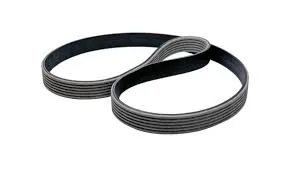- Arabic
- French
- Russian
- Spanish
- Portuguese
- Turkish
- Armenian
- English
- Albanian
- Amharic
- Azerbaijani
- Basque
- Belarusian
- Bengali
- Bosnian
- Bulgarian
- Catalan
- Cebuano
- Corsican
- Croatian
- Czech
- Danish
- Dutch
- Afrikaans
- Esperanto
- Estonian
- Finnish
- Frisian
- Galician
- Georgian
- German
- Greek
- Gujarati
- Haitian Creole
- hausa
- hawaiian
- Hebrew
- Hindi
- Miao
- Hungarian
- Icelandic
- igbo
- Indonesian
- irish
- Italian
- Japanese
- Javanese
- Kannada
- kazakh
- Khmer
- Rwandese
- Korean
- Kurdish
- Kyrgyz
- Lao
- Latin
- Latvian
- Lithuanian
- Luxembourgish
- Macedonian
- Malgashi
- Malay
- Malayalam
- Maltese
- Maori
- Marathi
- Mongolian
- Myanmar
- Nepali
- Norwegian
- Norwegian
- Occitan
- Pashto
- Persian
- Polish
- Punjabi
- Romanian
- Samoan
- Scottish Gaelic
- Serbian
- Sesotho
- Shona
- Sindhi
- Sinhala
- Slovak
- Slovenian
- Somali
- Sundanese
- Swahili
- Swedish
- Tagalog
- Tajik
- Tamil
- Tatar
- Telugu
- Thai
- Turkmen
- Ukrainian
- Urdu
- Uighur
- Uzbek
- Vietnamese
- Welsh
- Bantu
- Yiddish
- Yoruba
- Zulu
Gus . 07, 2024 19:40 Back to list
Optimizing Your Vehicle's Efficiency with High-Performance Serpentine Belt Technology and Installation Techniques
High Performance Serpentine Belts Enhancing Efficiency and Reliability
In modern automotive engineering, the components that contribute to the optimal performance of vehicles are of paramount importance. Among these, the serpentine belt plays a critical role in ensuring the smooth operation of various engine accessories. A high-performance serpentine belt is designed to optimize power transfer, enhance durability, and improve overall vehicle efficiency. This article will delve into the significance of high-performance serpentine belts and their impact on automotive performance.
Understanding the Serpentine Belt
The serpentine belt, also known as a multi-rib belt, is a long, winding belt that powers multiple components in an internal combustion engine. These components typically include the alternator, power steering pump, water pump, and air conditioning compressor. Unlike the older systems that utilized multiple belts for various accessories, the serpentine belt unifies these functions into a single, efficient solution. This design not only simplifies the engine layout but also reduces the weight and potential failure points in the system.
Advantages of High-Performance Serpentine Belts
High-performance serpentine belts feature advanced materials and construction techniques that set them apart from standard belts. One of the key features is the use of synthetic rubber compounds and high-strength reinforcements, which enhance the belt's tensile strength and flexibility. This improvement allows the belt to withstand higher temperatures and extreme conditions without succumbing to wear or cracking.
Additionally, many high-performance belts include specially designed ribs that improve grip and reduce slippage. This is crucial for maintaining the correct power transfer to engine accessories, leading to better performance and efficiency. When a belt slips, it can cause poor charging of the battery, inadequate power steering, and reduced cooling, ultimately affecting the driver's experience and the vehicle's reliability.
high performance serpentine belt

Longevity and Maintenance
One of the significant benefits of investing in a high-performance serpentine belt is longevity. Standard belts may need to be replaced every 60,000 to 100,000 miles, depending on driving conditions and maintenance practices. In contrast, high-performance belts can often last significantly longer due to their robust construction. With proper maintenance—such as regular inspections for signs of wear, alignment checks, and ensuring proper tension—drivers can maximize the lifespan of their serpentine belts while minimizing the risk of unexpected failures.
Economic Impact
While high-performance serpentine belts may initially come at a higher cost, the long-term economic benefits often outweigh the price difference. By enhancing engine efficiency and reducing the likelihood of belt-related failures, these belts can contribute to lower repair costs and improved fuel economy. A well-functioning serpentine belt ensures that accessories operate effectively, which is essential for overall vehicle performance and efficiency.
Conclusion
In conclusion, high-performance serpentine belts are crucial components in modern vehicles that significantly impact efficiency and reliability. Their superior materials and design lead to enhanced power transfer, less slippage, and increased longevity. For vehicle owners and enthusiasts looking to optimize their automotive performance, investing in a high-performance serpentine belt is a wise decision. By ensuring that this vital component is of high quality, drivers can enjoy a smoother, more reliable driving experience, while simultaneously reducing maintenance costs and extending the life of their vehicle's engine accessories. As automotive technology continues to evolve, the importance of utilizing high-performance components like serpentine belts will only grow, paving the way for more efficient driving solutions.
-
Korean Auto Parts Timing Belt 24312-37500 For Hyundai/Kia
NewsMar.07,2025
-
7PK2300 90916-T2024 RIBBED BELT POLY V BELT PK BELT
NewsMar.07,2025
-
Chinese Auto Belt Factory 310-2M-22 For BMW/Mercedes-Benz
NewsMar.07,2025
-
Chinese Auto Belt Factory 310-2M-22 For BMW/Mercedes-Benz
NewsMar.07,2025
-
90916-02660 PK Belt 6PK1680 For Toyota
NewsMar.07,2025
-
drive belt serpentine belt
NewsMar.07,2025

